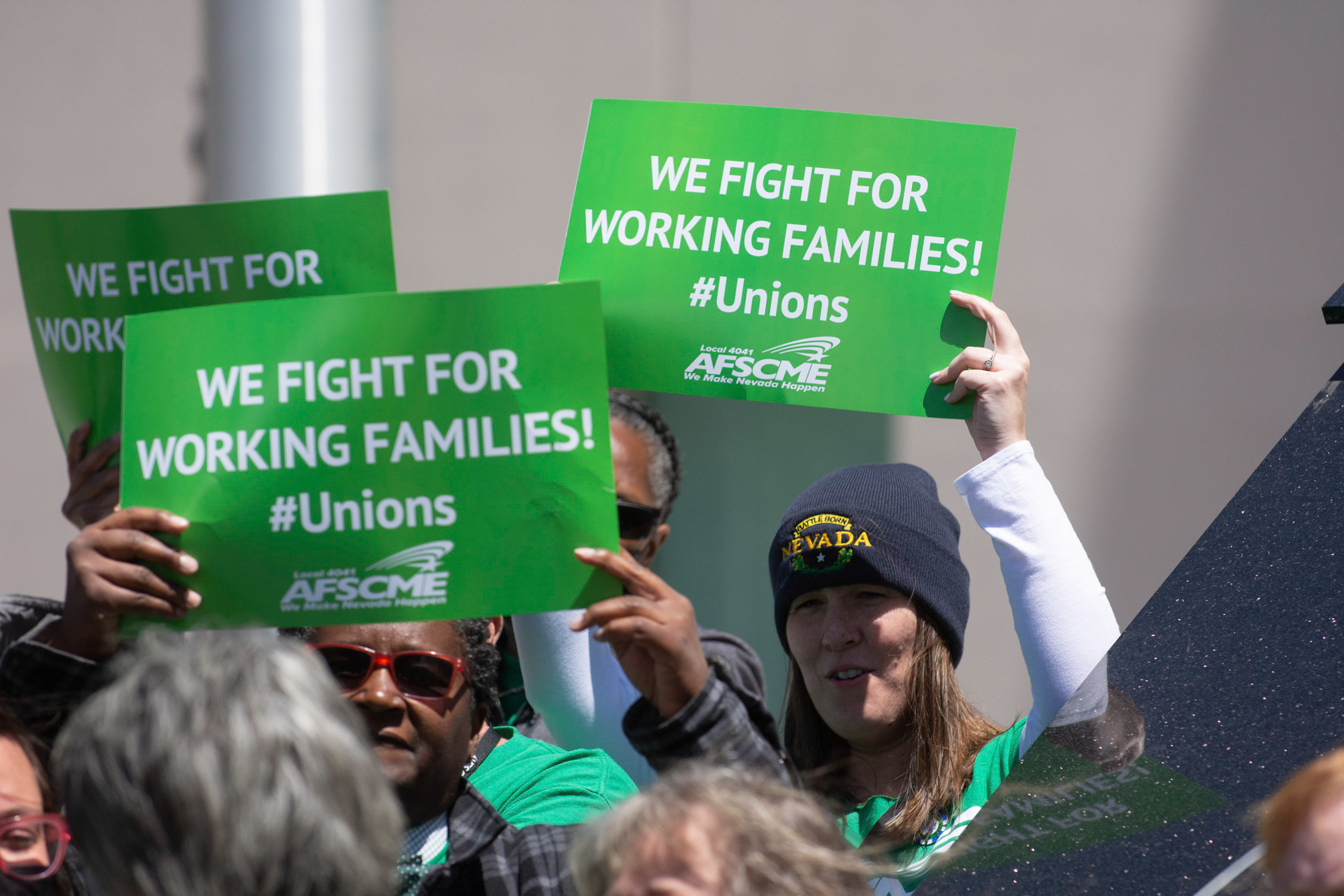A group of nearly 3,000 state employees — including those working for the welfare agency and Nevada Department of Motor Vehicles — have voted to be a part of collective bargaining agreements negotiated by a major state worker union.
More than 88 percent of the 1,001 state employees who participated in the election this month voted to be represented in collective bargaining talks by the American Federation of State, County and Municipal Employees (AFSCME) Local 4041. The state’s Government Employee-Management Relations Board, which held the election, will vote on certifying the results next month.
The bargaining unit now represented by AFSCME includes DMV service technicians, family support specialists in the Department of Welfare and Support Services, engineering technicians from the Department of Transportation and library technicians across all Nevada System of Higher Education institutions.
If certified, the election results nearly double the number of state workers represented by the union in contract negotiations with the state, bringing AFSCME’s total number of represented state workers to more than 6,000. AFSCME members whose workplaces are not in certified collective bargaining units can receive the union’s assistance on issues such as disciplinary matters, but do not receive the benefits of these contracts.
Under a state law, state employees won the right to unionize in 2019, splitting the workers into 11 bargaining units of different classes of employees that are allowed to form unions and negotiate with the state for salary and other specified benefits. AFSCME currently represents three other bargaining units of state employees.
“Since winning collective bargaining rights in 2019, having a union contract has improved working conditions for all state employees,” Sandra Dillup-Carter, an employee in the Division of Welfare and Support Services, said in a statement. “We fought for this election because we know the difference a voice on the job can make. Now we will have more power to make even more improvements for state workers and the services we provide.”
The employees — who are in bargaining Unit C — in June had garnered enough support to hold an election on whether to be included in the contract agreements. An employee’s affirmative vote in the election indicated support for a collective bargaining contract, but does not require becoming a union member.
AFSCME’s first contract negotiation faced obstacles after a third-party arbitrator awarded the union money for pay raises in 2022. The funding never materialized amid a quirk in the state’s two-year budget cycle — when the Legislature was out of session and unable to fund pay raises that year — and a partisan divide about retroactively authorizing the money.
In 2023, Democrats supported a bill that would have funded the retroactive pay increase awarded to state workers, but Republican Gov. Joe Lombardo vetoed it. The union sued Lombardo but lost in district court in November. The case was appealed to the state Supreme Court and a settlement was reached earlier this year, though settlement documents provided no details.
The union also secured bonuses in March for longtime state workers after suing the state for determining that the bonuses could not apply to unclassified workers — typically those in leadership positions — and members not in collective bargaining units.

